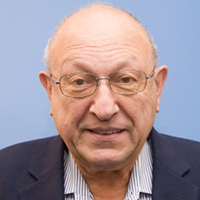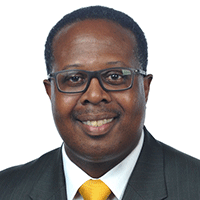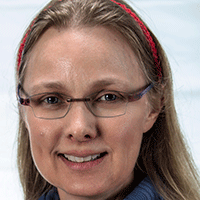October 26, 2021, 8 AM to 9 AM PDT
Ephraim Suhir, Portland State University

Keynote Title: Avoiding Inelastic Strains in Solder Joint Interconnections of IC Packages
Abstract: The following three practically important questions associated with predicting and improving the reliability of solder joint interconnections of IC packages are addressed: I. Could inelastic strains in the solder material be avoided by a rational physical design, and if not, could the sizes of the inelastic strain areas be predicted and , if possible, minimized? II. Considering that the difference between an highly reliable and an insufficiently reliable product is “merely” in the level of their never-zero probability of failure, and that SJIs are usually the most vulnerable structural elements in an IC package design, could this probability be assessed at the design stage and, if possible, made adequate for the given application? III. Should temperature cycling accelerated testing for SJIs be replaced with a more physically meaningful, less costly, less time- and labor- consuming and, most importantly, less misleading accelerated test vehicle?
Biography: Ephraim Suhir is on the faculty of the Portland State University, Portland, OR, USA, Technical University, Vienna, Austria and James Cook University, Queensland, Australia, is CEO of a SBIR ERS Co. in Los Altos, CA, USA, Foreign Full Member of the National Academy of Engineering, Ukraine (he was born in that country);Life Fellow of the ASME, IEEE, SPIE, and the IMAPS; Fellow of the American Physical Society (APS), the Institute of Physics (IoP), UK, and the Society of Plastics Engineers (SPE); and Associate Fellow of the AIAA. Ephraim has authored and co-authored about 500 publications, presented numerous keynote and invited talks worldwide, and received many professional awards, including 1992 ASME Clock Award, 1996 Bell Labs Dist. Member of Technical Staff Award, 1997 ASME InterPACK'97 General Chair Award, 1999 ASME Charles Russ Richards Memorial Award, and 2004 ASME Worcester Read Warner Medal. He is the third “Russian American”, after S. Timoshenko and I. Sikorsky, who received this prestigious award. His most recent awards are 2019 IEEE EPS Field Award and 2019 IMAPS Lifetime Achievement award.
October 27, 2021, 8 AM to 9 AM PDT
Samuel Graham, University of Maryland

Keynote Title: Developing Wide Bandgap Electronics For Future Power and RF Applications
Abstract: Wide bandgap electronics are currently under development due to their potential to create future power and RF electronics. The growth of materials based on gallium nitride and more recently gallium oxide is expected to help create technological advancements that may yield a range of devices that operate with more efficiency, higher operational frequency, and smaller form factors. As these nitride and oxide semiconductors are being developed, there are a number of new materials, manufacturing techniques, and thermal and mechanical metrology methods that must be concurrently created to help ensure the transition from the laboratory to actual applications. Key concerns are scalable methods for growing and packaging the devices, materials and architectures needed to ensure efficient thermal management, and the control of stresses to prevent device failure.
In this talk, we will discuss a range of materials and device architectures that are being developed to enable efficient heat dissipation from both GaN and Ga2O3 devices starting at the device level. We will also cover a range of thermal and stress metrology methods that we have developed to enable the measurement of temperature and stresses in the devices both under steady state and transient operation. Finally, an actively cooled power substrate that is being developed for packaging power devices will be presented. At each step, we will show how considerations for materials development, metrology techniques, and methods for scalable manufacturing are necessary to help transition these advancements to applications.
Biography: Samuel Graham is the Nariman Farvardin Dean of the A. James Clark School of Engineering at the University of Maryland. He research is focused on the electrical and thermal characterization, packaging, and reliability of wide bandgap semiconductors, solar cells, and flexible electronics. He also holds a joint appointment with the National Renewable Energy Laboratory and is a Distinguished Visiting Professor at Nagoya University in Nagoya, Japan. He is a Fellow of ASME, a member of the Engineering Sciences Research Foundation Advisory Board of Sandia National Laboratories, and a member of the Emerging Technologies Technical Advisory Committee of the US Department of Commerce.
October 28, 2021, 8 AM to 9 AM PDT
Jessica Gullbrand, Intel

Keynote Title: Liquid Cooling of IT Equipment
Abstract: There is a continued demand for increasing compute performance, which results in an increasing system power and power density of many computers. Traditionally the cooling technology of choice has been air cooling using fans and heat sinks. However, as the power and power density are increasing, it is no longer feasible or cost effective to use air cooling to meet the thermal cooling requirements. Liquid cooling is more efficient than air cooling in removing heat and can be used to meet the increasing cooling demand. Traditionally, liquid cooling has been used to cool high power solutions (f.ex. super computers) in large data center deployments, but liquid cooling is now becoming more mainstream. Depending on the installation and system solution, liquid cooling can be used selectively to cool the high-power components or cool the whole compute system. This presentation covers liquid cooling trends, components needed for liquid cooling, liquid cooling work performed at Intel, and information about liquid cooling collaborations performed in different industry organizations.
Biography: Jessica is a Principal Engineer at Intel in the Data Platforms Engineering and Architecture Group. Currently, her focus is on developing advanced cooling solutions for IT equipment using liquid cooling. Jessica joined Intel 2006 and has managed projects relating to the development of new and innovative technology solutions for IT equipment in fluids, acoustics, and thermals. She joined Intel from academia, where she worked as an Assistant Professor in Mechanical Engineering. She taught a variety of fluid mechanic and thermal curriculum. She has 20+ years of experience in modeling, experiments, and project management. Jessica co-chaired the Grace Hopper Poster sessions by invitation from the Anita Borg Institute, and she is a recipient of the 2013 SWE Emerging Leader Award. Jessica has 10 patents and 25+ peer reviewed publications in journals and conferences.